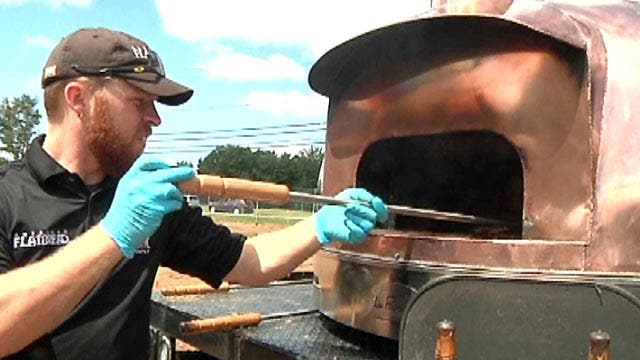Boss Pays Workers Out of Pocket After Factory Fire
An organic pizza company is rebounding after a fire leveled their local factory to ashes.
The company, Rustic Crust and American Flatbread, decided to keep their workers on the payroll until a temporary facility could be built.
The job loss could have had a devastating impact on the local economy. The company is the second largest employer in the area, employing over a 100 workers at their factory location.
The four-alarm fire was one of the worst the New Hampshire town had seen. Fire crews from 18 surrounding cities fought the blaze, depleting most of the town's water supply. Worker Paul Cote says he watched the factory burn to the ground, describing it as "an inferno" and unlike anything he'd ever seen.
"I was warm, fifty feet away," Cote explains. "I was hot. I mean it was horrible, it was devastating."
The factory was reduced to ash and could have left its 100 workers jobless, but CEO Brad Sterl was determined to keep the company alive despite the tragedy. The executive paid all his workers out of pocket, he even offered training and other benefits during the lag time.
"You know, paying one hundred thousand dollars a week in payroll sounds like a lot of money," Sterl says. In the scheme of losing those people or having those people be distressed in the process and not be ready when you're ready for them, you can't think of what that cost is."
New Hampshire Gov. Maggie Hassan (D) attending the groundbreaking and said that business friendly economic conditions in the state helped the organize pizza company bounce back.
"We really value entrepreneurs and we are a can-do state. I like to say we are an all hands on deck state," Hassan said. "When something happens like this, we really roll up our sleeves and come together."
Rustic Crust broke ground on their new factory and hopes to be fully operational by the fall. And as for the workers, they say they are thankful the fire didn't take everything from them.
"Staying in work was everything to my family, to everyone in town," Cote says. "It was great that we could."




















